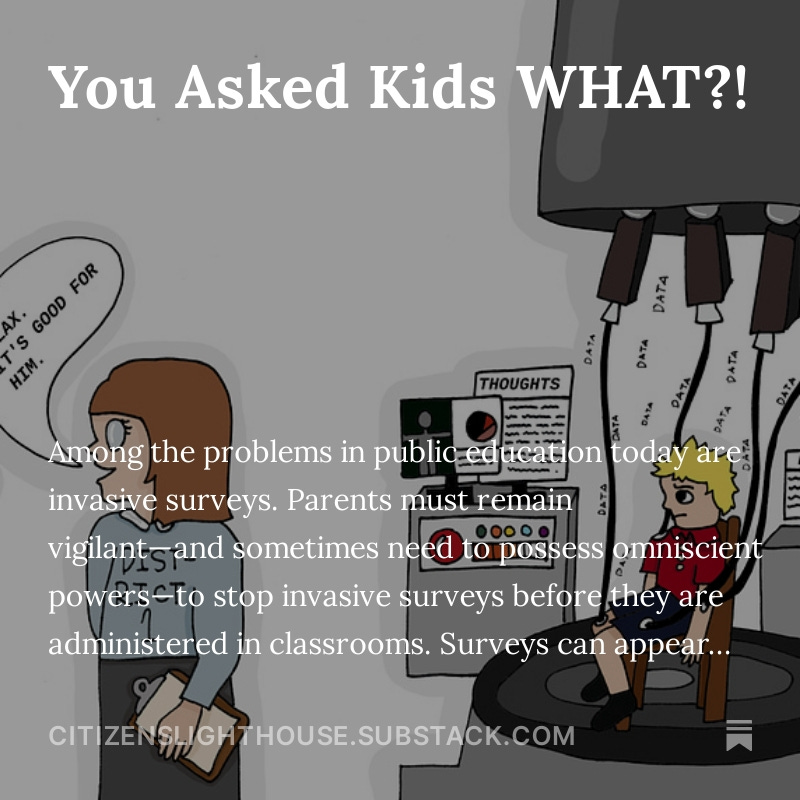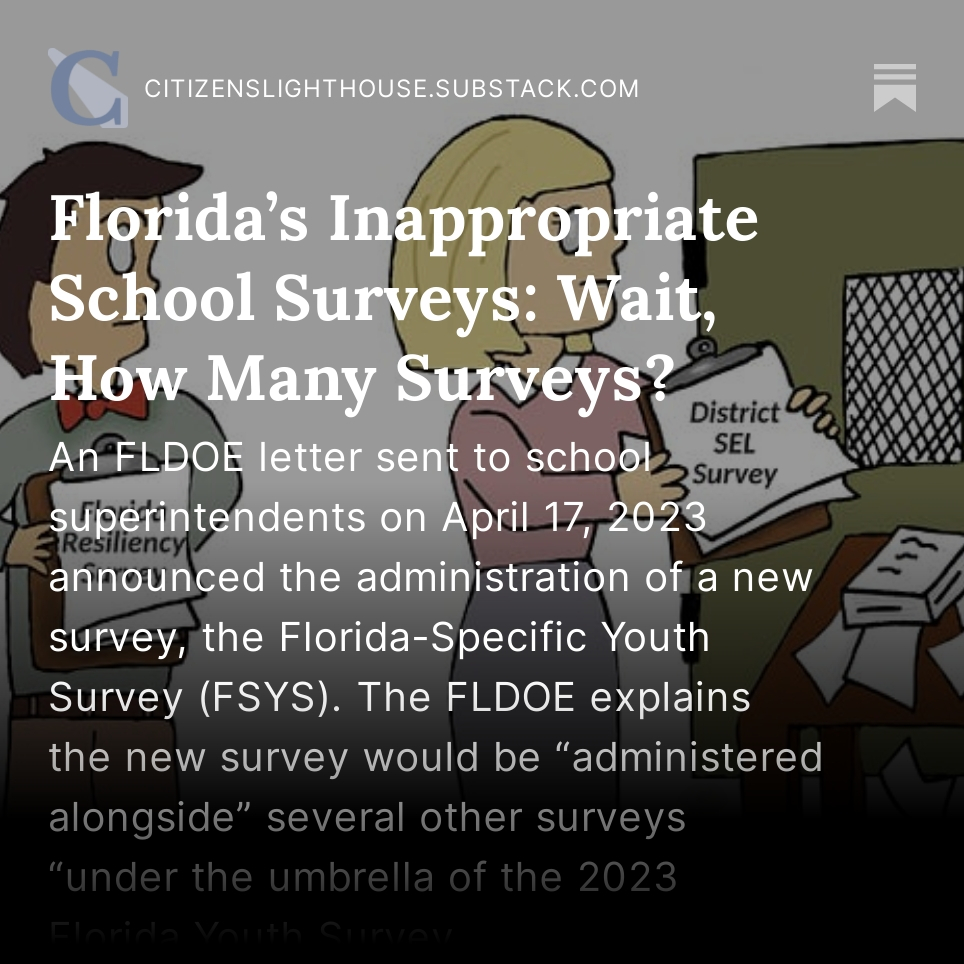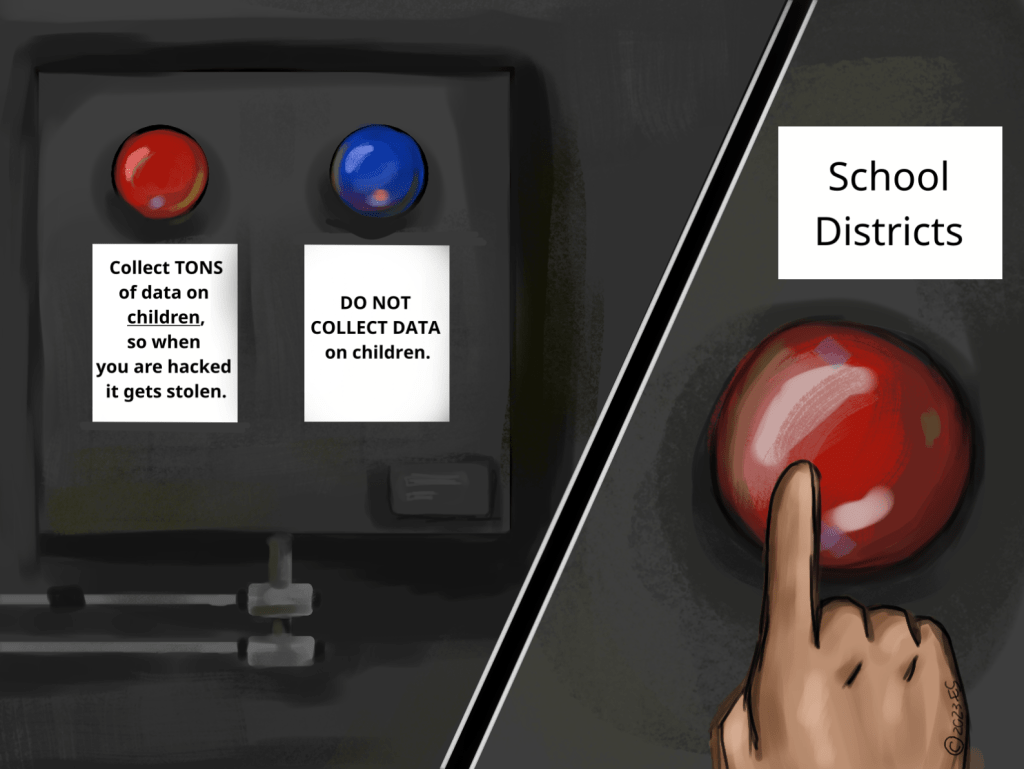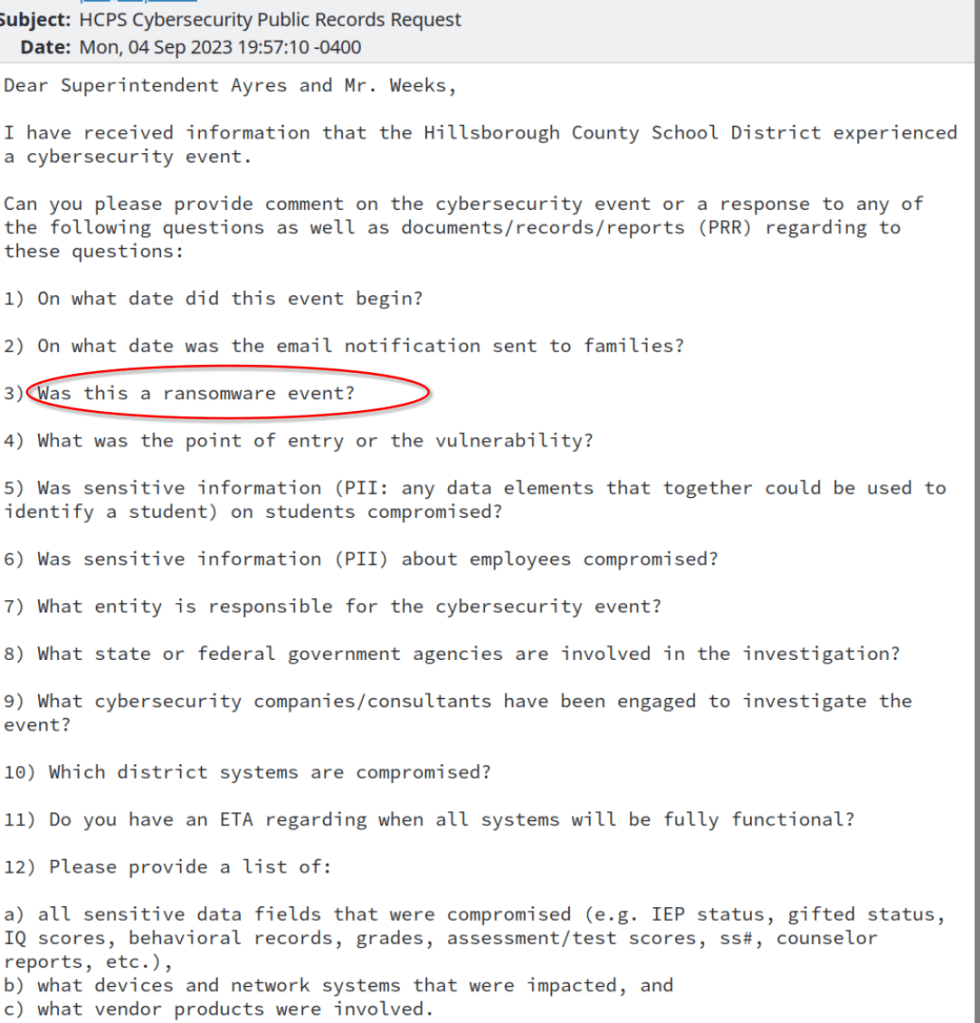
Pinellas County Schools, Florida, just announced a pilot for two AI “weapons detection systems” starting in Spring 2026. This means students are going to be surveilled by an AI machine for weapons, and mathematical formulas could trigger on non-existent weapons—kids could be reported to authorities and police.
This is technofascism at its finest. Welcome to the new Public School of Dystopia, a world where students must live under constant physical and digital surveillance. They’ve turned public schools into a prison panopticon. The people in charge are not thinking about your child’s freedom, privacy, or how it will impact their behavior in little ways that eventually result in self-policed speech, and ultimately control of the public.
Let’s take a look at how one AI weapons detection system, Omnilert, just impacted a student in Baltimore County, Maryland. According to CNN’s interview with the student, he had a gun pointed at him, was forced to his knees, had his arms put behind his back, and was handcuffed because AI thought his bag of Doritos was a gun. No child should have to experience this for eating Doritos. Great work done by the Public School of Dystopia.
This kind of surveillance is alive and well in Florida, and has been, especially since the School “Safety” law was passed. Unfortunately this law resulted in a litany of weird and creepy digital programs and policies installed by the state of Florida. Such as monitoring social media, tracking with AI what students type into the apps they have to use for school, and so on. The law also created a report on students app that was promoted by former Attorney General Pam Bondi, who insisted during an October 2018 press conference that all students should use the app, FortifyFL. The problem with that was the app did not appear to be COPPA compliant, which I pointed out immediately on X, at the time, Twitter. COPPA is a federal law protecting the privacy of children under 13 from having their data collected by operators of websites or online services. Even worse, the app was reportedly not initially anonymous as marketed, though that was supposedly fixed by changing the default for location services to off during installation, I still had my doubts about its anonymity regardless of their “fix”.
As the world keeps moving at a breakneck pace building out our digital prison, let’s hope and pray that we resist Digital ID because AI false alarm events such as the “Doritos-gun” alert could automatedly and immediately be put on a permanent immutable blockchain record and might result in some negative outcomes, such as losing access to public transportation or your bank.
Pinellas schools says their pilot AI weapons detection system is “Enhancing Physical Safety.” It seems fully within the realm of possibility that such an AI system could hallucinate on a Doritos bag and cause a child to be faced with a crowd of cops and a gun pointed at him—I do not think this is “enhanced safety.”
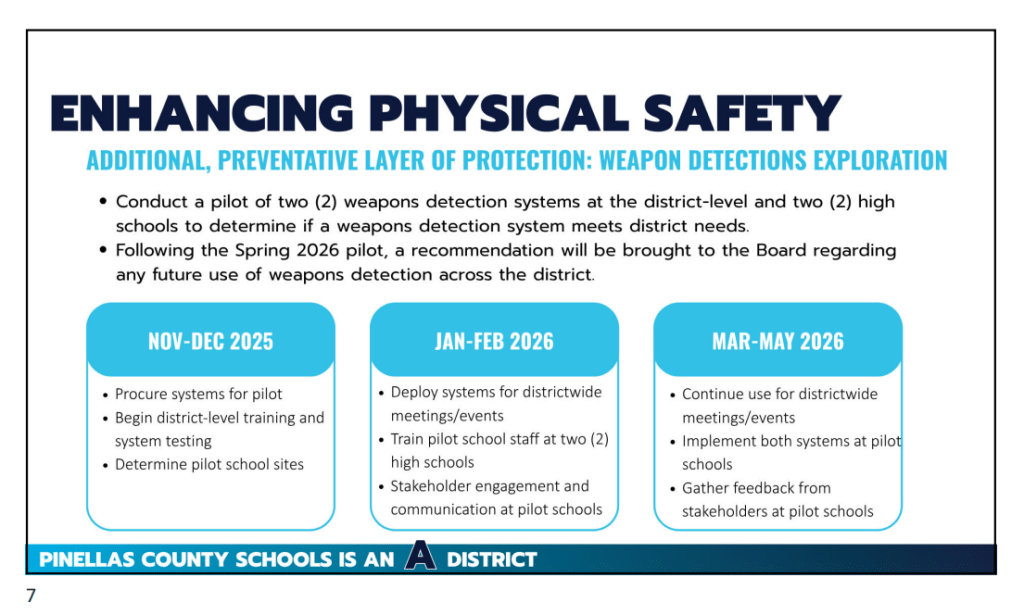
A child living in fear over what might alert the system in school is not a peaceful way to live. We the People have an inalienable right to Life, Liberty, and the pursuit of Happiness; being surveilled by an AI that might result in facing a team of armed cops for eating Doritos is not compatible with any of these inalienable rights.
There is a real cultural impact of putting people under constant surveillance. It is dystopian, it is wrong; it will stifle free speech which is essential to our liberty, and it might even change how we act and what we eat! No more Doritos in school—though not a bad idea for public health it IS apparently a bad idea for AI weapons detection systems.


